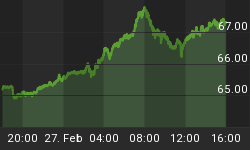The string of better-than-expected reports continues in the United States. At the contrary, the E.U. Summit did not provide any guidance on the main issues. Greece remains on the brink of collapsing and the euro/usd could eventually correct.
The U.S. is pulling. Will it last?
Job creation is gaining momentum in the U.S. Non-farm payrolls rose by 243,000 in January from 203,000 in December. Gains include manufacturing (+50,000), construction (+21,000) and private services (+176,000). The unemployment rate fell instead to 8.3% from 8.5%. Business hiring helped, along with the decline of layoffs among state and local governments. Solid profit gains inspired companies to invest more in machinery and equipment. The ISM composite index improved for the third month in a row to 54.1. New orders moved-up to 57.6. The car industry scored good numbers as well.
Time will tell, if this is a sustainable recovery or just a move toward pre-recessionary highs, before declining to the lows again. The long-term bearish cycle that started in 2000 is still on-track and might last few more years. However, the line of the next economic cycle might have been drawn.
Ultra-low interest rate levels are supporting the economy and reducing debts for household, government and businesses. Additional cash-flow should inspire more balance sheet restructuring and maybe increase spending. The other side of the story is inflation. It should be just a matter of time, before it will increase once more.
Europe: One step at a time. Is it enough?
line to European banking institutions. Nonetheless, any delays in implementing the fiscal and structural reforms would increase downside risk and limit growth. Last week's Summit did not provide any clear line regarding the fiscal and/or political union. 25 European nations agreed on a few measures such as debt breaks and legal actions against countries that fail to comply. Any decision regarding a larger ESM and EFSF was postponed to March.
Confidence remains weak. Unemployment among the young population is a challenge and increases the possibility of social tensions. In Spain and Greece, it reaches 50%, while in France and in Great Britain is above 20%. Germany, Austria and Holland have instead low unemployment rates. In effect, economic growth is lacking.
In December, bank lending to private sector fell euro 74 billion, the largest monthly drop in history. Household credit plummeted euro 8 billion, while loans to non-financial corporation declined euro 37 billion. Banks are making more difficult to borrow money, despite the large injection of liquidity provided by the E.C.B last year. The Euro/usd is at a crucial level. It corresponds to the neckline of recent consolidation. A breakout failure could take the price to 1.28 and eventually 1.26. The Greece's saga might be moving toward the end. A sell-off is still possible, although most of the bad news should already be discounted in current prices. According to the C.O.T. report for the week ending February 03/12, commercial and speculative positions remain near historical high levels.















